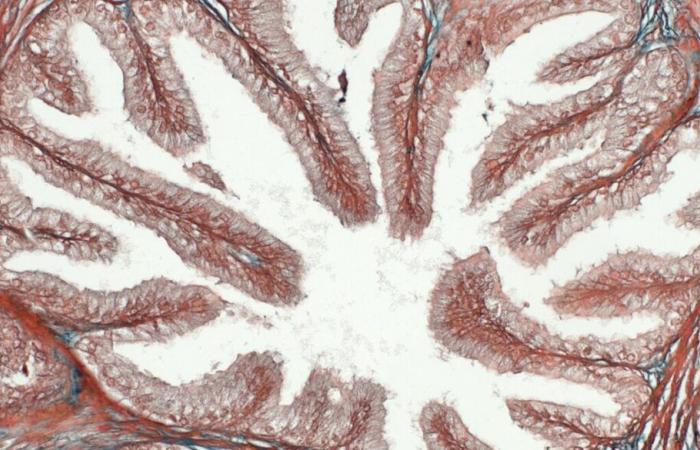Public figures who urge all men to get tested for prostate cancer are well-intentioned, but are they wise? The question arises, among other things, because the test currently used to detect this disease leads a significant proportion of men to believe that they have this cancer when this is not the case.
The lack of specificity of this test has also led a team of researchers from Laval University, led by Étienne Audet-Walsh, to publish, in recent months, two scientific articles in which they argue in favor of the use of a second marker, citrate, to improve prostate cancer screening.
Remember that the test currently used to screen for cancer measures the concentration of prostate-specific antigen (PSA). “It is a protein produced exclusively by prostate cells, whether healthy or cancerous. When the PSA level exceeds 4 ng/ml of blood, it is estimated that prostate cancer could be present,” recalls Professor Audet-Walsh, who is attached to the Faculty of Medicine at Laval University and at the Research Center of the CHU de Québec – Université Laval.
A good biomarker has two qualities, he continues. “First, it must have high sensitivity, that is, give a positive result when the disease is truly present. Then it must have high specificity, that is, it must give a negative result when the disease is absent. The PSA test has a sensitivity of over 90%, which is very good. On the other hand, its specificity is around 35%, which means that two out of three non-patients still receive a positive test. This creates a lot of anxiety, distress and unnecessary additional testing.”
Indeed, men whose PSA concentration is abnormal are required to undergo other examinations including a prostate biopsy. This procedure involves removing tissue from the prostate using a needle inserted through the wall of the rectum. The procedure can cause pain, bleeding, infections, urinary problems and inflammation.
“Due to the low specificity of APS, we must consider the use of other molecules produced by the prostate as biomarkers of this cancer,” argues Professor Audet-Walsh. We offer citrate because its metabolism is strongly reprogrammed when there is cancer. This is a marker that had already been studied in the past, but it had been discarded in favor of APS, the limits of which were not known at the time.”
In healthy patients, he explains, citrate is secreted toward the lumen (the hollow space in the center of the gland) of the prostate where it mixes with seminal fluid. When there is cancer, citrate excretion is greatly reduced. “The citrate secreted by the prostate then decreases between 10 and 100 times. The difference is very marked.”
There are already kits that can measure the concentration of citrate in blood and urine. “On the other hand, for prostate cancer screening, we could not proceed with these biological fluids because the citrate they contain comes from all parts of the body and not exclusively from the prostate. Ideally, the analyzes should be carried out using a semen sample. The acceptability of this approach by patients remains to be verified, but considering that it can avoid a transrectal biopsy, they could see it as a definite advantage.
— Étienne Audet-Walsh, on the idea of using two markers, APS and citrate, to detect prostate cancer.
Professor Audet-Walsh and his colleagues do not propose replacing the PSA test with the citrate test, but rather combining them. “In this way, we would achieve very high levels of sensitivity and specificity,” underlines the researcher. The results would be more reliable, worry and unnecessary examinations for patients would be avoided, in addition to reducing pressure on the health system. We are currently working on the development of a citrate assay method suitable for prostate cancer screening. If this tool became accessible to doctors, I believe they would not hesitate to use it in combination with APS.”
The research team published its analyzes of PSA and citrate as markers of prostate cancer in Nature Reviews Urology and in the Journal of Steroid Biochemistry and Molecular Biology. The authors are Lucas Galey, Herman Nabi, Jean-Sébastien Paquette, Frédéric Pouliot and Étienne Audet-Walsh, from Laval University, and Ayokunle Olanrewaju, from the University of Washington.






